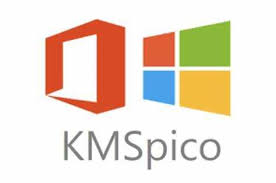Over 14 billion people are using mobile devices across the globe, with more than 4 million applications available on both Google Play and App Store. This figure clearly shows how the demand for apps among smartphone users. Having an app not only helps businesses to remain competitive in the digital space but also helps businesses in boosting their sales.
If you are looking for an online business opportunity, launching an application could be a smart move.
But then comes the decision of choosing the suitable application for your business. Whether a native or a cross-platform application, which is best for the business?
So, before coming to a decision, you need to evaluate their significance, advantages, disadvantages, and differences. It will help you to analyze and explore both types of mobile application development processes.
Let’s begin and understand which of these two options is more effective for your online business and brand in the long run.
A Brief Understanding Of Native App Development
Native application development can be referred to as the process of building exclusively for a specific device or a single platform mobile application. Native application development requires certain programming languages for specific operating systems. It also has specific tools. They are very compatible and have high performance, as they are built for specific devices.
With the specified platforms, native apps have an enhanced user experience as the visual elements are tailored to the platform. Native applications require more investment for their high-end user experience and prompt delivery of results.
Here is the list of pros and cons of the native mobile app development approach that you should check out and then make your decision.
Strengths Of Native App Development
Enhanced Scalability
Native applications are more scalable and dynamic with robust performances. This is so because the resources used to manage and develop the native apps are more scalable too. The array of tools and APIs available has a broader functionality. This increases its compatibility and scalability.
With native applications, business owners do not need to break a sweat thinking about the compatibility of the app. They can easily integrate with the device and access its hardware to enhance performance. There is also no worry about how the native app will behave with the browser.
Multiple Functionality
With a native app development approach, you can access every API and tool available on the platform. Your mobile app development service provider can personalize every tool and API that will work with your business idea. There are no limitations to the functionality of the native app development process which can broaden your scope for business operations.
High-End Performance Along With Great UX
Native applications are very high-performance applications that provide enhanced user experience to all their subscribers. Such applications can access the device’s hardware directly like GPS, Bluetooth, camera, microphone, etc to acquire a better performance level. The user experience is synchronized with the platform which makes the customer experience more enticing and engaging. Additionally, the direct interaction between the programming code and the resources links to high performance.
Smooth Post-Launch Support
Native app development can be launched and published easily. It delivers prompt results with enhanced speed and user experience. This further boosts the performance of the native apps and helps improve the rankings on the platform’s app store.
Weaknesses Of Native App Development
Requires More Investment
Native applications require much more investment than other app development approaches. The platform-specific criteria for native applications and demand for specific tools while launching simultaneously for Windows, iOS, and Android – becomes a much costlier option. Therefore, small businesses or startups cannot afford such huge financial budgets during their initial stage.
Time-Consuming
The native app development process is a very time-consuming project. As native applications are platform-oriented apps, programmers cannot duplicate their work. The whole process has to get started from scratch with separate teams working on each phase of the native app development phases.
Takeaway-
Native application development can be a suitable choice for you if you are looking to achieve the following through your business application-
- You as a business owner need a responsive and scalable, complex business application – a native app is a great choice.
- Your business native application needs full accessibility to the user’s resources and services inside the mobile devices. Native apps can leverage the device’s hardware for high-end and complex performing applications.
- You need enhanced customer support through high performance and greater user experience (UX) – native apps are most suitable as they render rich results to a targeted audience.
- If you have no budget constraint or deadline to meet, native apps are suitable as it takes more time and money than cross-platform apps.
- You need fast upgrades and enhanced functionality with new features in the long run.
A Brief Understanding Of Cross-Platform App Development
The cross-platform application development approach is the procedure to develop applications that are compatible and can work with more than one platform. They are not developed for multiple platforms so that businesses can generate maximum results with minimum investment.
Cross-platform apps can be launched on Windows, iOS, and even Android. It takes less time and demands less investment than native applications. Though in the case of cross-platform apps, there is a chance that the results are not qualitative and high performing, as compared to native apps. But it is one of the most obvious choices for startups and small businesses.
Below are some of the pros and cons of the cross-platform app development process that you definitely should go through carefully before making your choice.
Strengths Of Cross-Platform App Development
Budget-Friendly
Cross-platform applications are less expensive to develop when compared with native applications. You do not need separate teams to work on the development process- only one is enough. This way you can save a lot of development costs. With a handful of resources and a budget-friendly mobile app development service provider in India will do the task.
Faster App Development
There are no elongated development procedures and phases as it is required for native applications. There is only a single development process cycle for cross-platform apps, which runs on multiple platforms together as well as within a budget.
Single Code Platform
Cross-platform applications are created with a single cross-platform development tool. Therefore, it is very easy to handle the apps with fewer complexities in the technical area.
Weaknesses Of Cross-Platform App Development
Poor & Slow Performance
Most of the time, the quality of the cross-platform applications is lost in translation. They lack additional abstraction layers and rendering processes, which in return makes them slower and delivers poor performance results. Though do not have the high-end support that the native apps and their counterparts have to deliver an enhanced performance and booster UX.
Suppressed Functionality
In cross-platform applications, they do not have the accessibility to the mobile device and the resources that the native apps can easily access in a heartbeat. Therefore, the cross-platform application functionality is curbed as they have difficulty accessing the functionalities on phones like GPS, camera, microphone, etc.
Limited UX
With limited functionality and lower performance as stated above, the cross-platforms also prompt lower user experience (UX). Unlike native applications, cross-platform applications do not have high-end functionalities or resources. It has limited visual elements with poor animation. Therefore, as a result of all the other weaknesses that it has, the summation results in a poor user experience for the subscribers.
Takeaway-
Cross-platform applications are the most appropriate choice for your online business/brand if you are looking for the following to achieve through your app.
- If a responsive application with limited functionality is okay for you to work with, then you can go for cross-platform apps.
- If you are a startup that is looking for a scope of opportunity to get maximum return with minimum investment- cross-platform can deliver the same.
- If you are not in the market for complex animations and high-end apps.
- If you are running on a deadline to deploy your business application with a limited amount of money – then the cross-platform app is the best option for you. Along with low maintenance cost, it hardly puts a strain on your pocket.
Conclusion-
Choosing native app development or cross-platform app development is completely upon you. You can make a decision based on its pros and cons. But you must understand how they are beneficial for your business approach. You need to figure out what is the most suitable approach for your business/brand and then seek professional help to get started.





